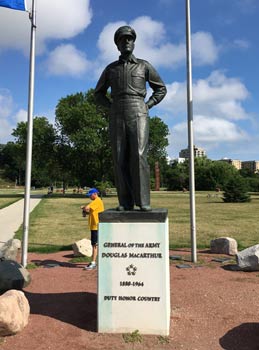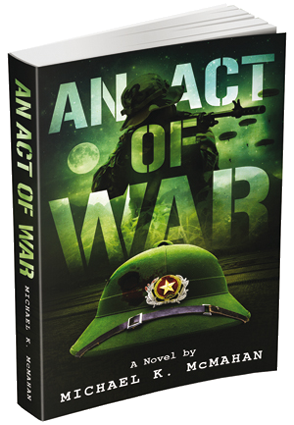I recently attended a funeral. I barely knew the person who had died. But I know and love his parents. My heart sank as I saw them standing solemnly at the front of their church, hugging those who took the time to comfort them. In their humble sorrow they acknowledged what we all know instinctively—parents should never outlive their children.
My wife’s grandfather lived to the age of 102. When he was in his late nineties I asked him about the highs and lows of his life. He said the highs were the many technological advances he had witnessed, including the first automobile (which scared his mule) and an airplane flying low along the South Fork River. The lowest points in his life were the losses of his children. “A man should never outlive his children,” he told me with tears in his eyes.
In Milwaukee this weekend I had the opportunity to stand beside the statue of General Douglas MacArthur. MacArthur was a five-star general and the leader of Allied Forces in the Pacific in World War II. At the base of his statue are five gold stars arranged in a distinctive circle and the words duty, honor, country.
General MacArthur famously talked about these words at West Point in 1962 when he was presented the Sylvanus Thayer Award as that year’s honoree as outstanding graduate. The words duty, honor, and country are inscribed on the back of the award. These simple words have profound meaning to those who serve or have served their country in the military services.
In 1966 I joined the U.S. Army because I believed then, as now, that every person has a duty to serve their country in some capacity. I was selected to attend Officers’ Candidate School and graduated as a 2nd Lieutenant, Field Artillery Officer at the age of twenty in 1967. A year later I had the honor of serving with the First Air Cavalry Division in Vietnam and to stand alongside Captain Bill Meara, an Air Force Academy graduate who had transferred to the Army. Bill was killed in a fierce firefight on November 2, 1968.
Captain Humayun Kahn joined the U.S. Army after graduating from the University of Virginia. He believed, like me, that part of being a citizen of this country is the duty of public service. As a young man Captain Kahn enjoyed teaching physically handicapped children how to swim. By all accounts he was a good person and a talented leader. He was also a courageous soldier. When a suspected suicide bomber drove a truck onto the compound where he and his soldiers were stationed, he ordered everyone back and went personally to investigate. On that sad day he gave his life for his troops and his country. Captain Kahn was twenty-seven years old.
No parents want to outlive their children. This is true of Khizr and Ghazala Kahn as it is true of my friends, my wife’s grandfather, and the parents of my first company commander in Vietnam, Captain Bill Meara. But to those who commit themselves to duty, honor and country, people like General Macarthur, Captain Meara, General McCaffrey and Captain Kahn, we owe a double measure of gratitude. It is the personal courage of people like these that makes America great. From my heart and the hearts of millions of people of good will in this great country I express my sincere sympathy to Mr. and Mrs. Kahn for the loss of their brave son and my gratitude for the selfless service of Captain Humayun Kahn, a person who knew and lived by the timeless principals of duty, honor and country.


